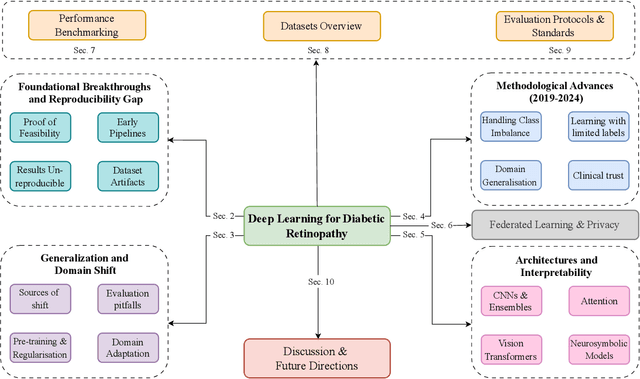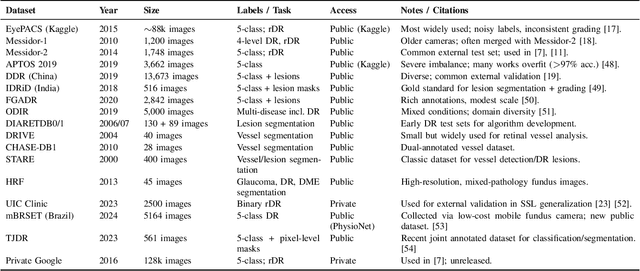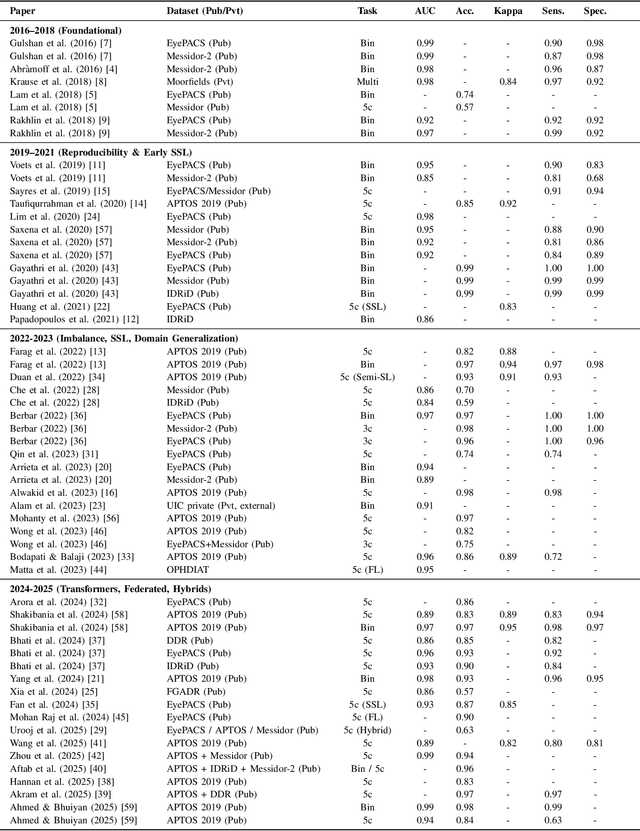Muskaan Chopra
History Rhymes: Macro-Contextual Retrieval for Robust Financial Forecasting
Nov 16, 2025Abstract:Financial markets are inherently non-stationary: structural breaks and macroeconomic regime shifts often cause forecasting models to fail when deployed out of distribution (OOD). Conventional multimodal approaches that simply fuse numerical indicators and textual sentiment rarely adapt to such shifts. We introduce macro-contextual retrieval, a retrieval-augmented forecasting framework that grounds each prediction in historically analogous macroeconomic regimes. The method jointly embeds macro indicators (e.g., CPI, unemployment, yield spread, GDP growth) and financial news sentiment in a shared similarity space, enabling causal retrieval of precedent periods during inference without retraining. Trained on seventeen years of S&P 500 data (2007-2023) and evaluated OOD on AAPL (2024) and XOM (2024), the framework consistently narrows the CV to OOD performance gap. Macro-conditioned retrieval achieves the only positive out-of-sample trading outcomes (AAPL: PF=1.18, Sharpe=0.95; XOM: PF=1.16, Sharpe=0.61), while static numeric, text-only, and naive multimodal baselines collapse under regime shifts. Beyond metric gains, retrieved neighbors form interpretable evidence chains that correspond to recognizable macro contexts, such as inflationary or yield-curve inversion phases, supporting causal interpretability and transparency. By operationalizing the principle that "financial history may not repeat, but it often rhymes," this work demonstrates that macro-aware retrieval yields robust, explainable forecasts under distributional change. All datasets, models, and source code are publicly available.
From Retinal Pixels to Patients: Evolution of Deep Learning Research in Diabetic Retinopathy Screening
Nov 14, 2025



Abstract:Diabetic Retinopathy (DR) remains a leading cause of preventable blindness, with early detection critical for reducing vision loss worldwide. Over the past decade, deep learning has transformed DR screening, progressing from early convolutional neural networks trained on private datasets to advanced pipelines addressing class imbalance, label scarcity, domain shift, and interpretability. This survey provides the first systematic synthesis of DR research spanning 2016-2025, consolidating results from 50+ studies and over 20 datasets. We critically examine methodological advances, including self- and semi-supervised learning, domain generalization, federated training, and hybrid neuro-symbolic models, alongside evaluation protocols, reporting standards, and reproducibility challenges. Benchmark tables contextualize performance across datasets, while discussion highlights open gaps in multi-center validation and clinical trust. By linking technical progress with translational barriers, this work outlines a practical agenda for reproducible, privacy-preserving, and clinically deployable DR AI. Beyond DR, many of the surveyed innovations extend broadly to medical imaging at scale.
How Small Can You Go? Compact Language Models for On-Device Critical Error Detection in Machine Translation
Nov 12, 2025Abstract:Large Language Models (LLMs) excel at evaluating machine translation (MT), but their scale and cost hinder deployment on edge devices and in privacy-sensitive workflows. We ask: how small can you get while still detecting meaning-altering translation errors? Focusing on English->German Critical Error Detection (CED), we benchmark sub-2B models (LFM2-350M, Qwen-3-0.6B/1.7B, Llama-3.2-1B-Instruct, Gemma-3-1B) across WMT21, WMT22, and SynCED-EnDe-2025. Our framework standardizes prompts, applies lightweight logit-bias calibration and majority voting, and reports both semantic quality (MCC, F1-ERR/F1-NOT) and compute metrics (VRAM, latency, throughput). Results reveal a clear sweet spot around one billion parameters: Gemma-3-1B provides the best quality-efficiency trade-off, reaching MCC=0.77 with F1-ERR=0.98 on SynCED-EnDe-2025 after merged-weights fine-tuning, while maintaining 400 ms single-sample latency on a MacBook Pro M4 Pro (24 GB). At larger scale, Qwen-3-1.7B attains the highest absolute MCC (+0.11 over Gemma) but with higher compute cost. In contrast, ultra-small models (0.6B) remain usable with few-shot calibration yet under-detect entity and number errors. Overall, compact, instruction-tuned LLMs augmented with lightweight calibration and small-sample supervision can deliver trustworthy, on-device CED for MT, enabling private, low-cost error screening in real-world translation pipelines. All datasets, prompts, and scripts are publicly available at our GitHub repository.
Learning Self-Supervised Representations for Label Efficient Cross-Domain Knowledge Transfer on Diabetic Retinopathy Fundus Images
Apr 20, 2023



Abstract:This work presents a novel label-efficient selfsupervised representation learning-based approach for classifying diabetic retinopathy (DR) images in cross-domain settings. Most of the existing DR image classification methods are based on supervised learning which requires a lot of time-consuming and expensive medical domain experts-annotated data for training. The proposed approach uses the prior learning from the source DR image dataset to classify images drawn from the target datasets. The image representations learned from the unlabeled source domain dataset through contrastive learning are used to classify DR images from the target domain dataset. Moreover, the proposed approach requires a few labeled images to perform successfully on DR image classification tasks in cross-domain settings. The proposed work experiments with four publicly available datasets: EyePACS, APTOS 2019, MESSIDOR-I, and Fundus Images for self-supervised representation learning-based DR image classification in cross-domain settings. The proposed method achieves state-of-the-art results on binary and multiclassification of DR images, even in cross-domain settings. The proposed method outperforms the existing DR image binary and multi-class classification methods proposed in the literature. The proposed method is also validated qualitatively using class activation maps, revealing that the method can learn explainable image representations. The source code and trained models are published on GitHub.
Domain Adaptable Self-supervised Representation Learning on Remote Sensing Satellite Imagery
Apr 19, 2023Abstract:This work presents a novel domain adaption paradigm for studying contrastive self-supervised representation learning and knowledge transfer using remote sensing satellite data. Major state-of-the-art remote sensing visual domain efforts primarily focus on fully supervised learning approaches that rely entirely on human annotations. On the other hand, human annotations in remote sensing satellite imagery are always subject to limited quantity due to high costs and domain expertise, making transfer learning a viable alternative. The proposed approach investigates the knowledge transfer of selfsupervised representations across the distinct source and target data distributions in depth in the remote sensing data domain. In this arrangement, self-supervised contrastive learning-based pretraining is performed on the source dataset, and downstream tasks are performed on the target datasets in a round-robin fashion. Experiments are conducted on three publicly available datasets, UC Merced Landuse (UCMD), SIRI-WHU, and MLRSNet, for different downstream classification tasks versus label efficiency. In self-supervised knowledge transfer, the proposed approach achieves state-of-the-art performance with label efficiency labels and outperforms a fully supervised setting. A more in-depth qualitative examination reveals consistent evidence for explainable representation learning. The source code and trained models are published on GitHub.
 Add to Chrome
Add to Chrome Add to Firefox
Add to Firefox Add to Edge
Add to Edge